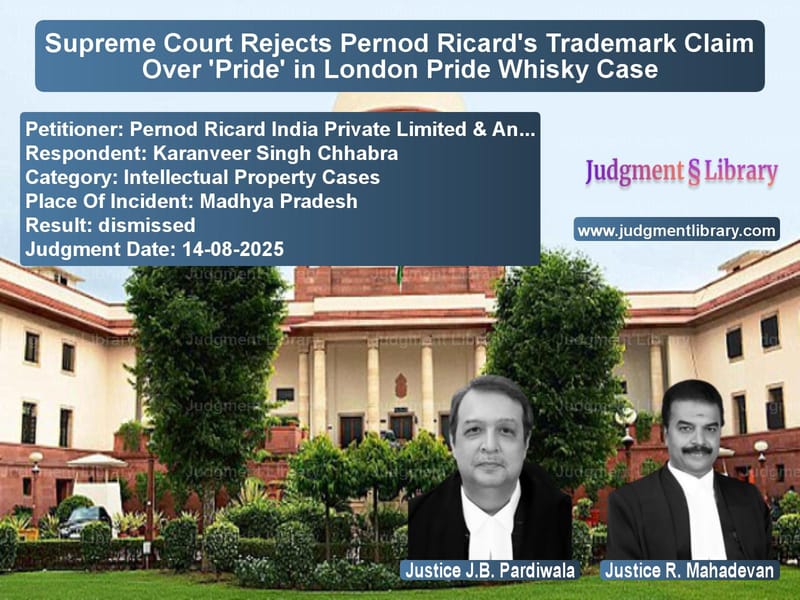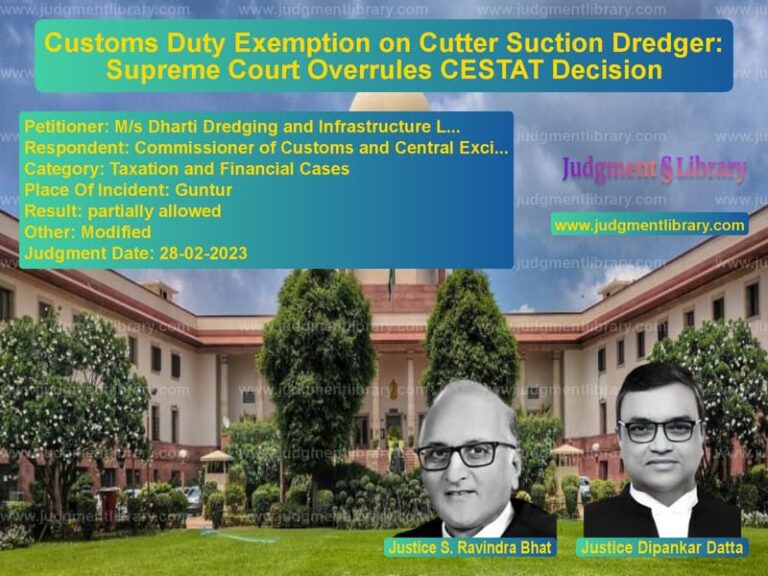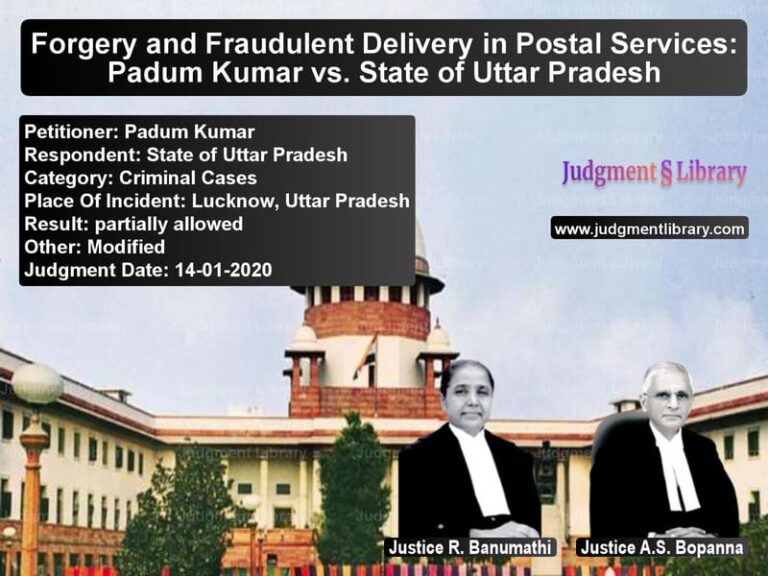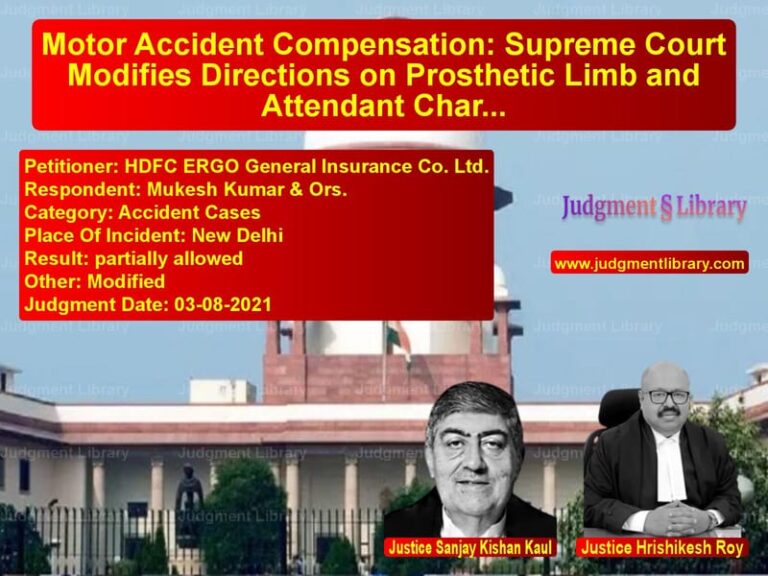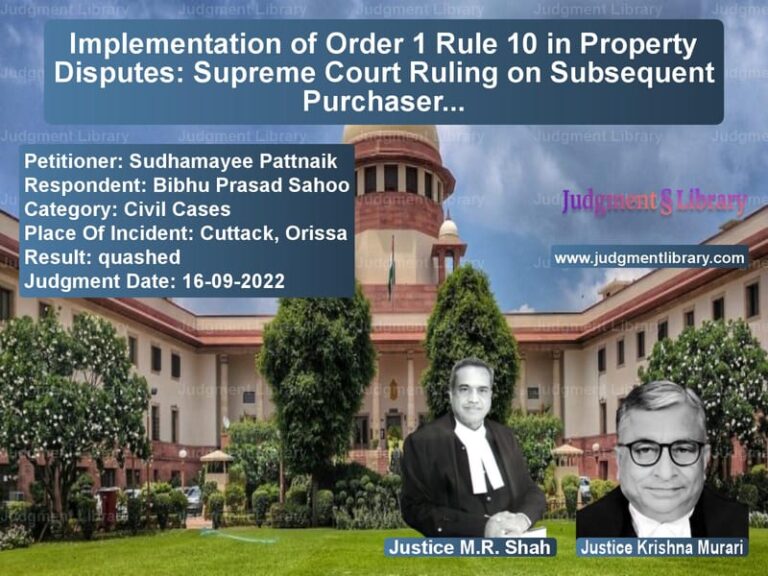Supreme Court Rejects Pernod Ricard’s Trademark Claim Over ‘Pride’ in London Pride Whisky Case
In a significant trademark ruling that clarifies the boundaries of brand protection for common words, the Supreme Court of India has dismissed Pernod Ricard India’s appeal seeking to prevent Karanveer Singh Chhabra from using the name ‘London Pride’ for his whisky brand. The judgment, delivered on August 14, 2025, reinforces that generic or laudatory terms cannot be monopolized by any single company, even when they form part of a registered trademark.
The legal battle began when Pernod Ricard, owner of well-known whisky brands ‘Blenders Pride’ and ‘Imperial Blue’, alleged that Chhabra’s ‘London Pride’ whisky infringed their trademarks and amounted to passing off. The company claimed that the use of ‘Pride’ in the competing brand name, along with similar color schemes and packaging elements, would confuse consumers into believing the products were connected.
The appellants, Pernod Ricard India Private Limited, argued vigorously that their registered trademarks deserved protection. Their senior counsel submitted that “the respondent has dishonestly adopted trademarks deceptively similar to the appellants’ well-known and registered marks – ‘BLENDERS PRIDE’, ‘IMPERIAL BLUE’, and ‘SEAGRAM’S’ – used for whisky, which enjoy significant commercial reputation in India and internationally.” They emphasized that their brands had achieved massive commercial success, with ‘Blenders Pride’ recording annual sales exceeding INR 1,700 crores and ‘Imperial Blue’ exceeding INR 2,700 crores.
Pernod Ricard’s legal team contended that “the Appellate Court failed to apply the test of deceptive similarity laid down by this Court in Kaviraj Pandit Durga Dutt Sharma v. Navaratna Pharmaceutical Laboratories where it was held that once the essential features of a registered mark are copied, differences in get-up, packaging, or additional writing are immaterial.” They argued that the courts below had erroneously dissected the mark ‘BLENDERS PRIDE’ and compared “BLENDERS” with “LONDON”, ignoring the distinctive and dominant component “PRIDE”.
The company further asserted that “in an infringement analysis, the test is whether there is a likelihood of confusion or association in the mind of the public. This is a matter for judicial determination and not dependent on testimonial evidence. The law protects against the likelihood of confusion itself; there is no requirement to prove actual deception or damage.”
In response, Karanveer Singh Chhabra’s legal team mounted a robust defense. The respondent’s senior counsel submitted that “the respondent is the proprietor of the trademark ‘LONDON PRIDE’ and all associated intellectual property. The respondent has been manufacturing and marketing liquor under the said brand name in the State of Madhya Pradesh.” They emphasized that their client had exclusive rights over the ‘London Pride’ mark and that no visual, phonetic, or structural similarity existed with Pernod Ricard’s brands.
The defense argued that “the label used by the appellants for their products under the trademark ‘IMPERIAL BLUE’ and the label of the respondent’s product sold under ‘LONDON PRIDE’ are entirely distinct, with no elements of visual or conceptual overlap. It was submitted that there is no deceptive similarity between the labels that could lead to confusion in the minds of consumers.”
After extensive consideration of both arguments and examination of legal precedents, the Supreme Court delivered its judgment, providing crucial clarity on trademark law principles. The Court emphasized that “it is a well-established principle of trademark law that generic, descriptive, or laudatory terms – particularly those commonly used in a given trade – cannot be monopolized by any one proprietor.”
The Court’s analysis provided important guidance on how trademarks should be evaluated, stating that “a foundational principle in trademark law is that marks must be compared as a whole, and not by dissecting them into individual components. This is known as the anti-dissection rule, which reflects the real-world manner in which consumers perceive trademarks – based on their overall impression, encompassing appearance, sound, structure, and commercial impression.”
Addressing the specific claim about the word ‘Pride’, the Court observed that “the word ‘PRIDE’ is a laudatory and commonly used English term, typically employed to suggest notions of excellence, heritage, or national identity. Within the alcoholic beverages industry, it is extensively used as part of various trademarks. Judicial notice may be taken of multiple registrations under Class 33 – such as McDowell’s Pride, Highland Pride, Royal Pride, and Pride of India – all incorporating the term ‘PRIDE’.”
The judgment further clarified that “the appellants’ mark ‘BLENDERS PRIDE’ is a composite trademark, comprising the suggestive term ‘BLENDERS’ – alluding to the craft of blending spirits – and the laudatory word ‘PRIDE’. By contrast, the respondent’s mark ‘LONDON PRIDE’, couples a geographical term with the same non-distinctive word ‘PRIDE’. The mere presence of a shared generic or descriptive element is insufficient, by itself, to support a claim of deceptive similarity.”
The Court also considered the profile of consumers for premium whisky products, noting that “the courts below also correctly observed that the products in question are premium and ultra-premium whiskies, targeted at a discerning consumer base. Such consumers are likely to exercise greater care in their purchase decisions. The distinct trade dress and packaging reduce any likelihood of confusion. The shared use of the laudatory word ‘PRIDE’, in isolation, cannot form the basis for injunctive relief.”
In its concluding remarks, the Supreme Court summarized its findings, stating that “applying the settled legal standards – including the anti-dissection rule, the overall similarity test, and the perspective of an average consumer – we prima facie find no deceptive similarity between the competing marks that would give rise to confusion.”
The Court dismissed Pernod Ricard’s appeal and directed the Commercial Court to proceed with the trial and dispose of the suit on merits within four months. The judgment serves as an important reminder that while trademark protection is essential for business identity, it cannot extend to common words that multiple businesses may legitimately wish to use in different contexts and combinations.
This decision reinforces the balance between protecting established brands and allowing fair competition in the marketplace, ensuring that common descriptive terms remain available for all businesses to use, provided they create sufficiently distinct overall brand identities that prevent consumer confusion.
Petitioner Name: Pernod Ricard India Private Limited & Another.Respondent Name: Karanveer Singh Chhabra.Judgment By: Justice J.B. Pardiwala, Justice R. Mahadevan.Place Of Incident: Madhya Pradesh.Judgment Date: 14-08-2025.Result: dismissed.
Don’t miss out on the full details! Download the complete judgment in PDF format below and gain valuable insights instantly!
Download Judgment: pernod-ricard-india-vs-karanveer-singh-chha-supreme-court-of-india-judgment-dated-14-08-2025.pdf
Directly Download Judgment: Directly download this Judgment
See all petitions in unfair trade practices
See all petitions in Judgment by J.B. Pardiwala
See all petitions in Judgment by R. Mahadevan
See all petitions in dismissed
See all petitions in supreme court of India judgments August 2025
See all petitions in 2025 judgments
See all posts in Intellectual Property Cases Category
See all allowed petitions in Intellectual Property Cases Category
See all Dismissed petitions in Intellectual Property Cases Category
See all partially allowed petitions in Intellectual Property Cases Category

